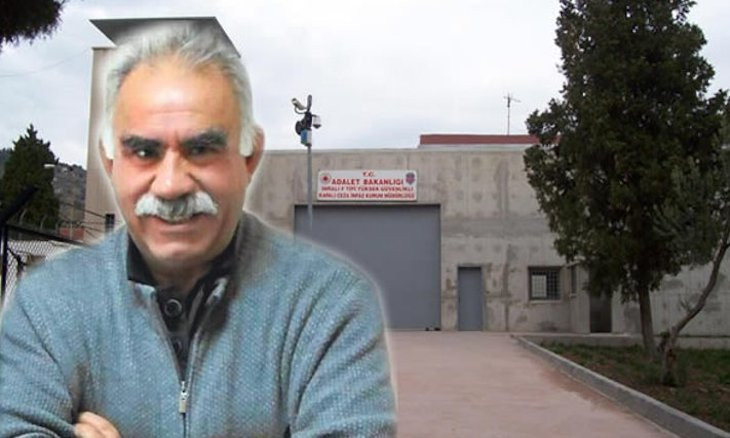Ban on family visits to İmralı Island brought before top European rights court
Prisoners in İmralı Prison, where PKK leader Abdullah Öcalan is kept, have not been allowed visitation rights for years. After the Turkish Constitutional Court ruled this lawful, lawyers are now bringing the case before the ECHR.
Duvar English
Families who have been unable to visit their imprisoned relatives on İmralı Island, in Turkey’s Marmara Sea, have now brought the case before the European Court of Human Rights (ECHR), Mezopotamya news agency reported on Oct. 8. The visitation ban, which lawyers for the prisoners say violates their constitutional rights, was upheld by the Turkish Constitutional Court in April.
Abdullah Öcalan, jailed leader of the Kurdistan Workers’ Party (PKK), which Turkey considers a terrorist organization, has been imprisoned on İmralı Island for 22 years. He was last able to meet with his lawyers in May, June, and August of 2019 after being unable to meet with them for eight years. He was able to have phone calls with his brother on April 27, 2020 and March 25 of this year - the last call, however, was cut short. Öcalan is kept in solitary confinement and is essentially isolated from the outside world, conditions that have sparked numerous hunger strikes in prisons throughout the country.
Hamili Yıldırım, Veysi Aktaş and Ömer Hayri Konar joined Öcalan in İmralı in 2015. The three men are, like Öcalan, kept in solitary confinement. Despite 750 applications for lawyer visitation and 350 applications for family visitation, the men have largely been kept isolated.
Since 2015, Yıldırım has been visited twice, Konar and Aktaş three times. Prior to the coup attempt of July 2016, families and lawyers were told they could not visit for logistical issues - a broken ship or poor weather, for example. After the coup attempt, the families were told that the men were under “disciplinary sanction” and could not receive visits. Since January 2021, the families have received no response at all.
Lawyers for the prisoners applied to the Bursa Judgeship and Heavy Penal Court in December 2020 to have what they said were unjust disciplinary measures against the men removed. The court rejected the application for Yıldırım, Aktaş, and Konar, at which point their lawyers applied to the Constitutional Court on the grounds that the Penal court decision was unlawful. The Constitutional Court, in April 2021, declared the applications “inadmissible” and said there had been no violation of the prisoners’ constitutional rights.
The status of Öcalan’s application is still undecided.
Having exhausted all domestic options, lawyers for Yıldırım, Aktaş, and Konar applied to the European Court of Human Rights in late September. Based on Article 90 of the Turkish Constitution, any decision made by the ECHR is legally binding in Turkey. However, in recent years, Turkey has failed to implement ECHR decisions in a series of high-profile cases, including that of jailed philanthropist Osman Kavala and former opposition Peoples' Democratic Party (HDP) co-chair Selahattin Demirtaş.

 Öcalan's phone call with brother cut off after voicing violation of communication right: LawyersPolitics
Öcalan's phone call with brother cut off after voicing violation of communication right: LawyersPolitics September ruling officially bars imprisoned PKK leader from seeing lawyers for six monthsPolitics
September ruling officially bars imprisoned PKK leader from seeing lawyers for six monthsPolitics